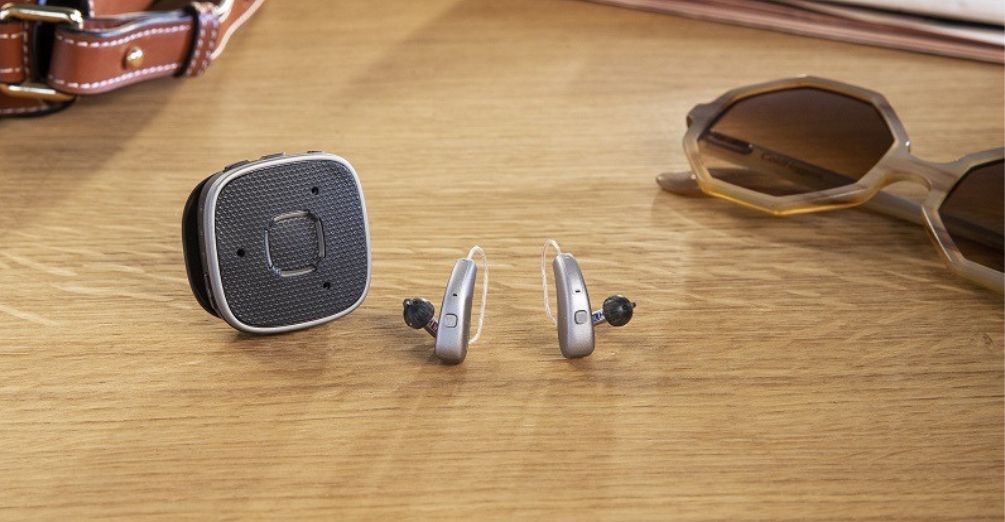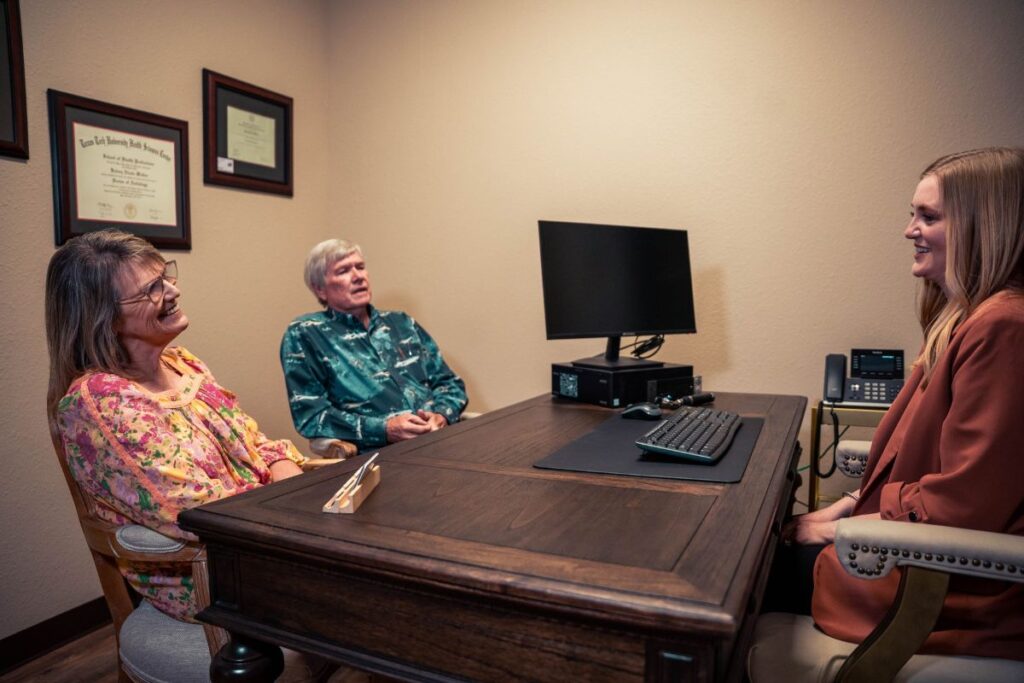Assistive listening devices (ALDs) help people with hearing loss to improve their ability to hear sounds and speech in different listening environments. ALDs enhance the signal-to-noise ratio, making it easier for the user to distinguish speech from background noise.
There are various types of assistive listening devices available, each designed for different situations. ALDs offer various benefits for individuals with hearing loss, including enhanced sound quality, improved speech understanding, increased independence, and better social interaction.
They can also be used in conjunction with hearing aids or cochlear implants to further enhance listening ability.

Types of Assistive Listening Devices
There is a wide range of assistive listening devices available, and below are the four most commonly used ALDs:
Audio induction or hearing loop
Sound is transmitted through a microphone and an amplifier and they work with a wiring that encircles the listening or seating area. Induction loops can be used in small spaces to facilitate one-on-one communication.
They can also be efficient in eliminating background noise, allowing the listener to hear the speaker’s voice clearly even in large spaces with poor acoustic features (high ceilings, hard floors).
Hearing aid users can easily use audio induction or hearing loops by using the T (telecoil) switch on their hearing aids while staying within or near the wired area.
For individuals without a hearing aid, T-coils can still be used through a portable device with headphones.
FM system
FM systems transmit sound wirelessly using radio waves. The listener wears a portable receiver while the speaker wears a compatible compact transmitter and microphone. FM systems may come in the form of a neckloop, headphone, or other hearing accessories. This type of ALD is commonly used for church settings, group meetings, classes, and conferences, and can be used outdoors or indoors.
Personal amplified system
Personal amplified systems can be used outdoors or indoors. It is a portable device that transmits sounds from a microphone to a corresponding neck loop, headphone, or earphone. This type of ALD can be used for TV listening or one-on-one conversations.
Bluetooth system
Bluetooth systems transmit sound through Wi-Fi and can work directly with Bluetooth-enabled hearing devices. This type of ALD can be used even without a hearing aid; smartphones or tablets with earphones or earbuds can connect via Bluetooth to receive sound coming from the Bluetooth system.
Frequently Asked Questions
Here are a few of the questions that patients frequently ask related to assistive listening devices. If you have a specific question that you need answered, please contact us.

Who benefits from assistive listening devices?
ALDs can help improve hearing for individuals with varying levels of hearing loss. Assistive listening devices can help enhance communication over the phone or offer better listening while watching TV or some other media.
For individuals with higher levels of hearing loss, assistive listening technology can help boost the performance of hearing aids by alerting them to alarms, sounds, or situations that may not be heard otherwise.
Why are assistive listening devices necessary?
Assistive listening devices offer enhanced “communication accessibility” by helping break down the barriers to effective communication. These devices can also help boost interpersonal and group communication more manageable in environments with poor acoustics or where distance is a factor.
Can assistive listening devices take the place of hearing aids?
Assistive listening devices are not created to replace hearing aids. ALDs can certainly be helpful in certain listening situations, but they do not and cannot provide the same level of amplification, clarity, and personalization as hearing aids.
Hearing aids are intricately designed to address the unique hearing needs of individuals diagnosed with hearing loss. They amplify sound and improve speech understanding in a wide range of listening situations. Hearing aids can be tailored to match an individual’s specific hearing needs, and many modern hearing aids come with advanced features that ALDs do not offer.
The correct way to look at hearing aids and ALDs is by understanding that the latter serves as
a valuable supplement to hearing aids, especially in situations where background noise or distance makes listening or hearing a challenge.
Put simply, ALDs can be used in conjunction with hearing aids to deliver additional amplification or improve speech understanding in challenging listening environments.
Ultimately, it is important to consult with an audiologist to determine the most appropriate device or solution for your specific hearing needs.
Assistive Listening Devices | Abilene, TX
While hearing aids are the most common solution for hearing loss, assistive listening devices can provide a valuable addition to certain hearing aids for individuals with varying degrees of hearing loss.
It is essential to consult with an audiologist to determine which ALD is best suited to one’s specific needs.
If you would like to learn more about assistive listening devices and hearing aids or would like to speak with a certified audiologist about your hearing loss needs, contact us today and schedule an appointment.
